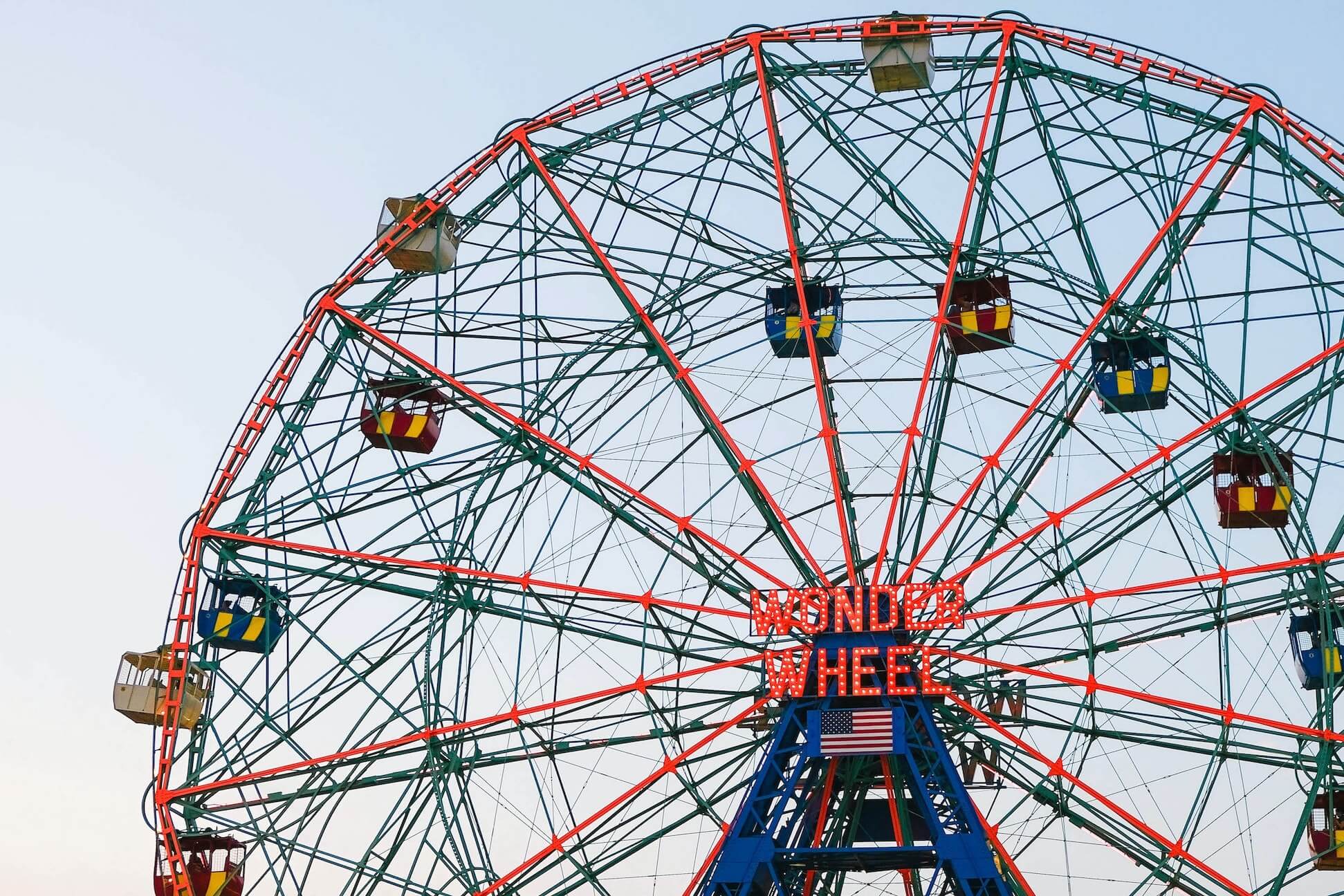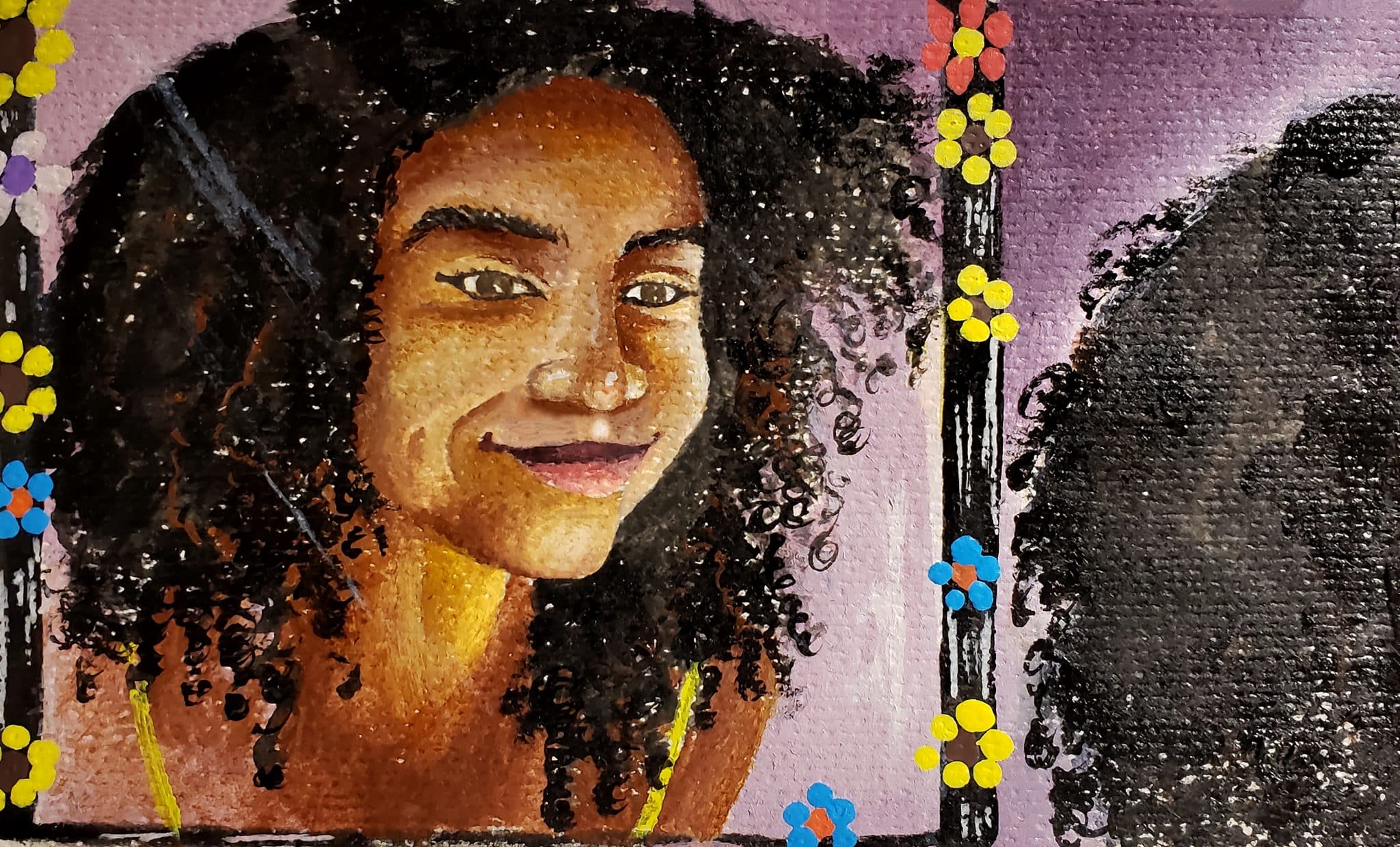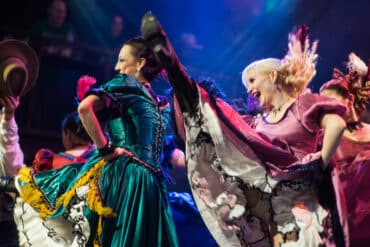The discrimination against certain kinds of Englishes is neither new or surprising, and linguistic discrimination certainly isn’t limited to English-speaking communities. The words we use and how we say them are much more than sounds, they tell a story that gives us away, revealing a history about and behind us, a place and a people that we have come from.
AUTHOR’S MEMO
In April of 2020, a new virus, poorly understood and out of control, threatened to penetrate our bodies. But, we, Antonio, Stephanie, and Alarii, felt safe, quarantined inside our South Philly rowhome. I, Stephanie, sat on our purple couch looking on as my spouse, Antonio, who had donned a green superhero mask, and our three-year-old son, Alarii, who had armed himself with an imaginary laser, began to battle one another. Alarii jumped onto his Papi’s back, wrestling him to the floor. “¡Aguas! ¡Aguas!” Antonio warned, as Alarii, without abandon, leaped onto Antonio’s head. His stubby little legs soaring over his own body onto the floor. But Alarii made a quick recovery, sprang to his feet, and landed a jab on Antonio’s gut, yelling out, “¡Aguacate!”
Both fell to the floor with Antonio holding Alarii close to his face, his black-brown curls falling into Antonio’s eyes. Antonio, smiling up at Alarii, said, “Ah, tu, mi caifán.” We both laughed at Alarii’s new linguistic construction, aguacate.
For Spanish-speakers reading this column, the humor and intelligence in this response are probably obvious. For the unlucky ones, who don’t speak Spanish, it may be less so. In Mexican Spanish, aguas doesn’t mean agua or water, instead, it means something like be careful or watch out. Moreover, adding “te” to the end of a word, like cuidate, means take care of yourself. What Alarii did here was take up his Papi’s aquas, add the “te,” thus creating aguacate, which literally translates to avocado, but in his mind, we knew he was trying to say, “watch out yourself.”
Yet, to add even more complexity to this linguistic interaction, Antonio immediately recognized Alarii’s emerging linguistic skill as a Mexicano, the ability to invent palabras, just like los caifanes. “Me cae fine,” los caifanes would have said, just good old Mexicanness, inventive and creative, saying things we’ve never heard before.
Mexicans are famous for their wordplays. There’s even a verb for it, albur, meaning something like to pun or play with the double meanings of words and phrases. Tournaments are held to determine the best alburero, a battle for who can invent the newest, most laughable, and sometimes crudest sayings and comebacks.
On that playful morning in South Philly, Alarii emerged among them, battling to be an alburero, catching my attention, begging me to write about the duality of our own lives.
In this column, I use autoethnography as a writing approach to capture and represent the personal experiences of myself, a qualitative researcher, who has become the researched. Over the past few decades, autoethnography has become a popular method in qualitative research. It’s driven by an ontological and epistemological resistance to writing about the other by turning the researcher into the researched, an attempt to turn the gaze back onto oneself, onto myself.
To help counter the “real” self-critiques of autoethnography, I attempt to show myself as becoming, changing even, to let some of my understandings remain unresolved, letting you, reader, read into my life what you understand about it.
Yet, autoethnography has also received much critique (Ellis, 2009), mostly due to its lack of generalization from the positivists, its attempt to reveal an absolute self, as levied by the poststructuralists, or even its lack of craft, from literary critics. In a way, I agree with these critiques. Readers, to the first point, please don’t try to generalize the stories of my experience that I recount here, as they are my own. To the second, this telling is meant to reveal truth, not facts, not a real self, but an emerging understanding of self, even selves, and how I came to know me, them. It’s a look inward to foster one outward. And if given the chance, my spouse and son may write very different stories than what I have penned. And given a few more years, I, too, may write a different story about living through a global pandemic. Finally, in terms of craft, who is really to say what is good writing? I trust that each reader will evaluate the quality of what I write here.
I’ve attempted to situate this autoethnographic account somewhere between the critical and the post perspectives, drawing on Anzaldúa’s (1987) critical form of autoethnography, autohistoria-teoría, a writing about one’s self to map one’s self onto theory. Or I wrote, and I write, to help me make sense of the distant and to help me deal with the imminent. On another note, some recent turns in autoethnography, as argued by Jackson and Mazzei (2008), have also shaped these tales. To help counter the “real” self-critiques of autoethnography, I attempt to show myself as becoming, changing even, to let some of my understandings remain unresolved, letting you, reader, read into my life what you understand about it.
Choi (2016), invoking Judith Butler (2003), claimed that autoethnographies are stories that begin in the middle. For me, this story began with Alarii’s grito, “Aguacate!” And I wondered, how did we all end up here? And because I write as this is happening, I’m also unsure exactly where to begin, and I have no idea as to how it will end. Anzaldúa (1987) resonated with this in-betweenness in another way. Nepantla, she called it. Emerging from Nahua ideology and language, she claimed that Nepantla was both a literal and metaphorical place of betweenness. It is a fruitful place of tensions, pulls and pushes, callings and answerings. A place where new things form. Somehow becoming bilingual and raising a bebe bilingüe, all during a pandemic became a Nepantla place for me. Unsure of what would happen next and when and how this would end, I decided to write through it.
In search of a structure, I focused on reflecting on and narrating my life experiences as to how I became a bilingual person and how I am trying to raise a bilingual child. To find a beginning, I return to my childhood and tell some of my stories, mostly chronologically, beginning with growing up monolingual in Southern Appalachia, then recounting my experiences as an elementary educator and educational interpreter for the Deaf, and finally, writing about my more recent experiences as a new mother of an emerging bebe bilingüe.
James Baldwin said becoming white is a moral choice. A choice I worked at, to be seen as White. For a long time, I thought it was just my desire for middle-classness, to earn more money than my mom and dad did, more than their mom and dad did. But class is raced in the United States and race is classed, so it was really Whiteness I sought, a pursuit of things and privilege. To rephrase Zora Neale Hurston, I wanted to step out in front of the white background in front of me and disappear into it.
Whitish: Becoming White Even When You are White
I, mamá to Alarii, was born into a white, working-class family in southern Appalachia (Catte, 2018). I grew up speaking only English, suffering from monolingualism, or so I thought. But now, as I gaze back onto my early language experiences, I realize that the language I spoke as a child and adolescent salted with might coulds, y’alls, dash pockets, and devil’s beaten his wife might’ve constituted a language altogether different from what many people imagine to be English (Clark & Hayward, 2013). So, perhaps I did grow up with some kind of “bi” lingualism, after all?
In elementary school, and even until high school, my language practices went mostly unmarked, meaning I sounded like most of my friends, but every now and then a teacher would red pen my y’alls and ain’ts right out of my school writing. It wasn’t until college that my speech became noticeably marked as different from what was deemed acceptable and appropriate for educated Americans. At times, it was overtly corrected by my professors and peers. But I was a quick learner, and I tried to neutralize my accent, correct my modals, and stop using y’all. Soon, I hoped, I would sound like I was from the highly desired anywhere and nowhere.
Now, when I return home to Georgia to visit family, sometimes strangers ask me if I am from California. Sadly, I shake my head in response, “No, I’m from here,” I confess. I seemed to have achieved my being from nowhere because, in the American South, California is as good as nowhere.
***
It wasn’t until I finished a master’s degree and moved to South Korea to teach English as a foreign language to very young Korean children, that I realized that my English speech was still noticeably perceived as different and wrong. One fellow English teacher, from the Midwest, was gracious enough to tell me that I shouldn’t even be teaching English as a foreign language since I couldn’t speak it correctly. This evaluation was from a guy who used the word pop for soda, and nasalized every vowel sound that we have in the English language. The irony.
The discrimination against certain kinds of Englishes is neither new nor surprising, and linguistic discrimination certainly isn’t limited to English-speaking communities. The words we use and how we say them are much more than sounds, they tell a story that gives us away, revealing a history about and behind us, a place and a people that we have come from. In my case, I think my language revealed that I came from a poor, “uneducated” family. Moreover, I needed education, correction, but, most importantly, these people were saying to me in not-so-coded language that I needed to “become White” (Sleeter, 2011).
As I look back, I think I learned about Whiteness from people who told me to change my speech, from friends who shopped at the mall, and from television that showed me what kind of house I should live in. When I looked around at my family, I knew who were the “unwhite” (McCarrol, 2018).
Although I was born with white, freckled skin, a lot of my life did not conform to some important rules of Whiteness. My family was not “educated.” We didn’t earn enough money to make a comfortable living. We didn’t talk right. And although my ancestors had literally come to the United States before it was even called that, for the past three hundred years, we had never “made it.” My mostly German ancestors found homes in the colonized land now called Pennsylvania, but when the “frontier” opened in the Carolinas, in search of cheaper land, they moved to what is now called the Piedmont. My mother, born in 1957, didn’t have an indoor bathroom until 1967, and my father, born in 1942, would wait at the end of the lunch line in elementary school to see if there would be free leftovers that day so he could have some lunch.
As I look back, I think I learned about Whiteness from people who told me to change my speech, from friends who shopped at the mall, and from television that showed me what kind of house I should live in. When I looked around at my family, I knew who were the “unwhite” (McCarrol, 2018). Among their worn faces and bad teeth, they were the evicted aunt, the arrested cousin, the abusive grandfather, and the abused. Too many to name among the abused. Some were always looking for another to take them in or for someone just to love them as they were.
To perform my role as White, I was a pretty good actress, but my co-stars weren’t so much. Especially, Daddy. When he roared into the high school parking lot to pick me up from cheerleading practice, in his fifty-shades-of-green, from some year in the 80s, Oldsmobile, with the push lawn mower hanging out of the tied-down trunk, I knew he had given us away.
James Baldwin said becoming white is a moral choice. A choice I worked at, to be seen as White. For a long time, I thought it was just my desire for middle-classness, to earn more money than my mom and dad did, more than their mom and dad did. But class is raced in the United States and race is classed, so it was really Whiteness I sought, a pursuit of things and privilege. To rephrase Zora Neale Hurston, I wanted to step out in front of the white background before me and disappear into it.
No doubt, more than any other physical feature, it is still my speech that betrays my performance as a White, middle-class American. But unlike some academics who have tried to construe the language practices of working-class families, like mine, as lacking in breadth, quantity, and quality, my life was full of words.
Words, Gaps, and Gaps of Words
No doubt, more than any other physical feature, it is still my speech that betrays my performance as a White, middle-class American. But unlike some academics who have tried to construe the language practices of working-class families, like mine, as lacking in breadth, quantity, and quality, my life was full of words.
My family went to church on Sundays, and sometimes Wednesdays. Fraying hymnals peppered our home’s tables and counters, filled with words like abide, wayfarer, rapture, fetter, and laud which were commonplace in our speech and song. We also lived on a farm, where we raised chickens and grew our own vegetables, and I used words like pullet, salmonella, broiler, shuck, manure, and fertilizer daily.
When I was in college, I read about a very popular theory claiming I had a word gap, and the “scientists” who had found such “gap” argued that it was the cause of poverty. Scientists love to find gaps and then spend their lives filling them. These word gap scientists did just that, and their gap has lived on for other scientists to fill, fill, and fill with money, not with words.
Much later in my life, I deeply investigated this “word gap theory,” and I uncovered that these word gaps had been documented by high school graduates, not qualified scientists, who observed families for just one hour each month in their homes. In reflection, I know those same people would have observed a word gap in my home. Mostly, because they wouldn’t have followed my daddy and me to the chicken house, where he taught me what a broiler was, or to the garden where he would teach me how to shuck corn, pulling the husk down and away from the cob, but being careful not to pull out the kernels.
Or maybe the observers in that study wouldn’t have heard enough words in my house because we were quieter, sometimes, especially if my mom was on the phone with Maw-Maw, her mother, or if my dad was reading the paper. Moreover, if we had known that someone was observing our home for research, we would have been quiet so as not to bother them, but honestly, we would have never let them in anyways.
When I was in college, I read about a very popular theory claiming I had a word gap, and the “scientists” who had found such “gap” argued that it was the cause of poverty. Scientists love to find gaps, and then spend their lives filing them.
My parents didn’t read bedtime stories to me either. In place of books, my dad usually told me tall tales from our family history. Between the time I was five and seven, I was obsessed with the stories of the Black Stallion, so he extended these narratives to get me to go to sleep, taking the Black Stallion through numerous adventures. When I was older, Daddy used to say, “I don’t why I didn’t write those down, I coulda sold a book!”
Although my mom bought me every book that I wanted when the Scholastic book fair popped up at my elementary school, ever so often taking over the library, she didn’t read to me at night, either. It wasn’t because she didn’t want to; it was because she didn’t need to. I read and read and read. No one needed to tell me to do it. From R.L. Stine to L.M. Montgomery, I lost myself in my favorite books, reading them over and over, so I could relive the narratives and feel close to the characters.
Sometimes, I fear that teachers, researchers, and many others think that reading is a cure for every ail, for poverty, for sure, but it isn’t. Many people who read a lot are poor. It’s important to remember that if poverty is a problem, then it is a problem of economy, not of intellect. But I argue that poverty isn’t a problem at all for the United States. As the so called labor shortage during the pandemic revealed, Americans are dependent on the poor to work for them. They, we, like for the poor to serve our cheap food, clean up after us, and promptly deliver all the goods we need to sustain our middle-class Whiteness. No amount of book reading will “fix” this problem. Well, maybe The Communist Manifesto, but that would be a very different kind of fix to the problem.
To be continued…
Featured image by Bessi for Unsplash









